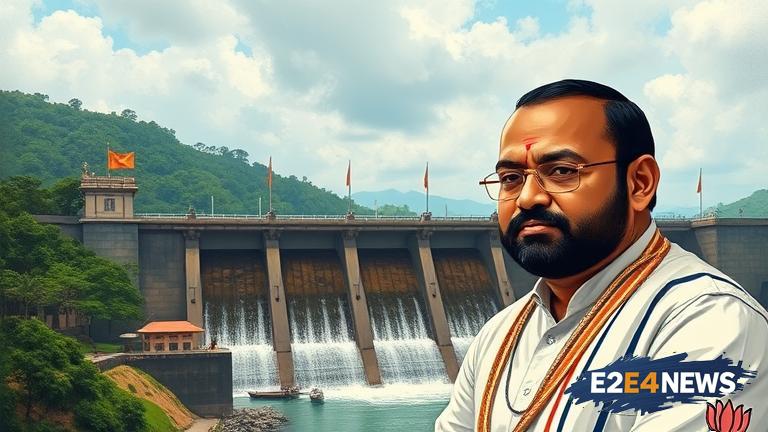The Bharatiya Janata Party (BJP) has accused Minister Dr. Mahadevappa of making calculated remarks about the KRS Dam, with the intention of renaming it after Tipu Sultan. The controversy began when Dr. Mahadevappa stated that the dam should be renamed after the 18th-century ruler, citing his contributions to the region’s development. However, the BJP has strongly opposed the idea, claiming that it is an attempt to appease the Muslim community and undermine the legacy of Sir M. Visvesvaraya, the engineer who designed the dam. The party has argued that renaming the dam would be a betrayal of Visvesvaraya’s memory and a disservice to the people of Karnataka. The BJP has also accused the Congress government of trying to rewrite history and distort the facts about Tipu Sultan’s rule. The party has pointed out that Tipu Sultan was a tyrannical ruler who persecuted Hindus and Christians, and that his legacy is not worthy of celebration. The controversy has sparked a heated debate in Karnataka, with many people opposing the idea of renaming the dam. The KRS Dam is a iconic landmark in the state and a symbol of its rich history and cultural heritage. It was built in the 1930s and is considered one of the greatest engineering feats of the 20th century. The dam has played a crucial role in the development of the region, providing water for irrigation, drinking, and industrial purposes. The BJP has vowed to oppose any attempts to rename the dam, and has called on the government to respect the legacy of Sir M. Visvesvaraya and the people of Karnataka. The party has also accused the Congress government of trying to divide the people of Karnataka along communal lines. The controversy has highlighted the sensitive nature of historical legacy and the importance of preserving the cultural heritage of a region. It has also sparked a wider debate about the role of history and culture in shaping the identity of a nation. The BJP has argued that the Congress government’s attempts to rename the dam are part of a larger agenda to rewrite history and promote a particular ideology. The party has accused the government of trying to impose its own version of history on the people of Karnataka, and of ignoring the contributions of other historical figures who have shaped the state’s development. The controversy has also raised questions about the importance of preserving historical landmarks and the role of government in shaping cultural heritage. The KRS Dam is not just a dam, but a symbol of the region’s history and cultural identity. It is a reminder of the ingenuity and skill of the engineers who built it, and of the sacrifices made by the people who worked on it. The dam has also played a crucial role in the economic development of the region, providing water for irrigation and industry. The BJP has argued that renaming the dam would be a disservice to the people of Karnataka, and would undermine the state’s rich cultural heritage. The party has vowed to continue opposing any attempts to rename the dam, and has called on the government to respect the legacy of Sir M. Visvesvaraya and the people of Karnataka. The controversy has sparked a wider debate about the importance of preserving historical legacy and cultural heritage, and has highlighted the need for a nuanced and balanced approach to history and culture. The BJP has argued that the Congress government’s attempts to rename the dam are part of a larger agenda to promote a particular ideology, and has accused the government of trying to divide the people of Karnataka along communal lines. The party has vowed to continue fighting for the preservation of Karnataka’s cultural heritage, and has called on the government to respect the legacy of Sir M. Visvesvaraya and the people of Karnataka.
